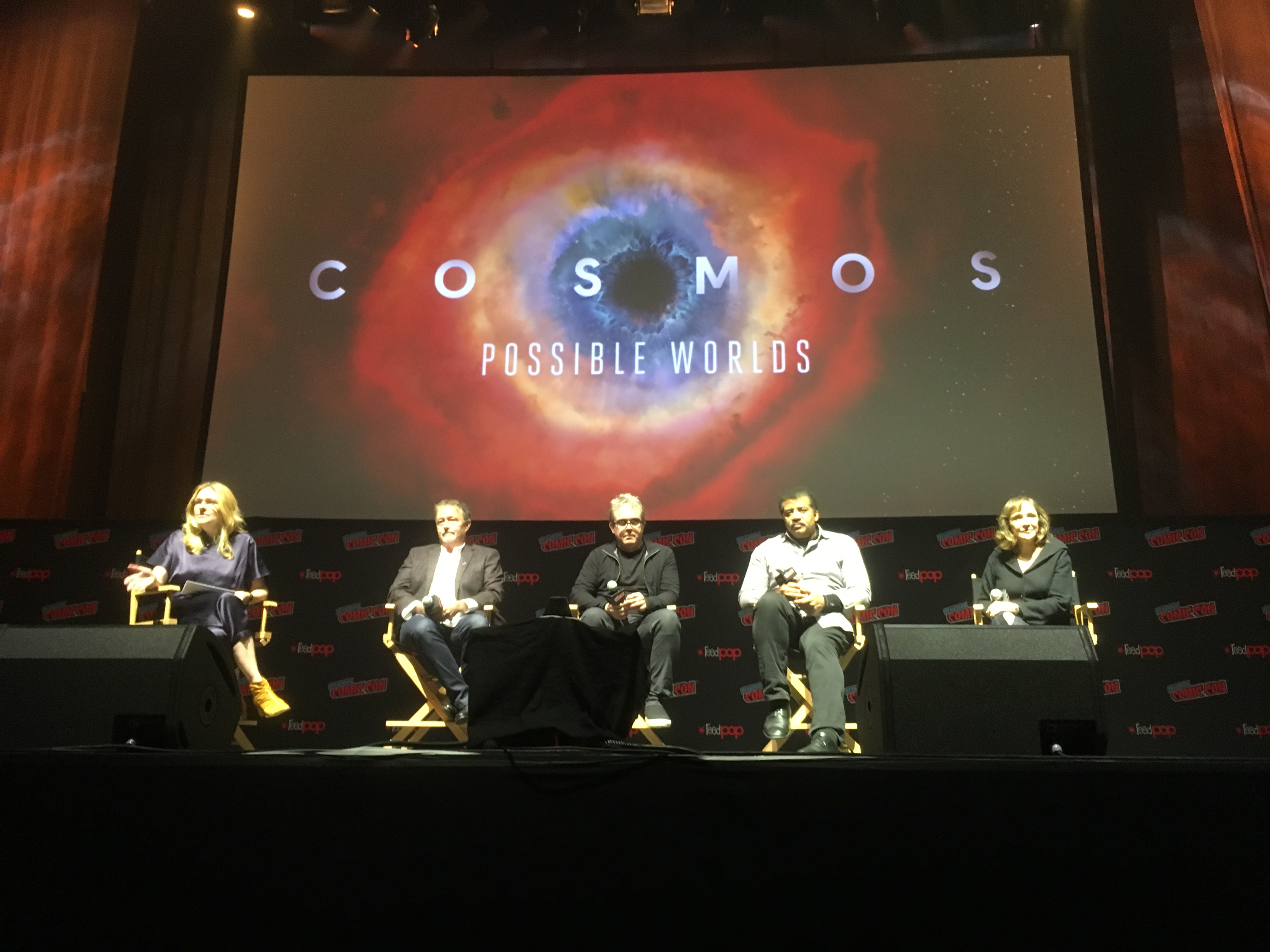“Knowing our place in the universe can change everything,” Neil DeGrasse Tyson said at the Cosmos: Possible Worlds panel at New York Comic Con this Sunday.
Tyson was joined on the panel by series writer/producer Ann Druyan, widow of Carl Sagan (creator of the original Cosmos), and executive producers Brannon Braga (Star Trek: The Next Generation, The Orville) and Jason Clark (The Orville).
The group laid out their mission for the new season, showing the audience different possible futures for humanity. At least one episode will follow the life of a child born in 2019 through two distinct realities, one in which we combat climate change and use the tools of science to serve the world, and another in which we don’t.

Neil DeGrasse Tyson and Ann Druyan Photo: Michael Rosch
This season, Tyson shot several of his segments while holding a baby, whom he speaks to directly. “The idea is this baby is born the very day that the first episode of Cosmos is broadcast,” Druyan said. “So the idea is Neil talked about coming of age in the Anthropocene, and this moment where we as a species are having an out-sized influence on the fate of the other lifeforms on this planet . . . If you were born on that day in Spring of 2019, how would your life unfold?”
How will that child’s life be different if we don’t address climate change from how it would be if we do? “It’s a kind of monologue to this baby as we inch into the future,” Druyan said.
The show will continue to tackle a variety of other subjects, as well. In one upcoming episode, Tyson will explore the mycelium network in mushrooms that connect the roots of different plants together, allowing them to communicate, a difficult thing to show on screen.
“We feel privileged that we have access to that level of talent,” Tyson said of the high production value given to the new season and the number of artists who have gotten involved out of love for the project.

Brannon Braga and Neil DeGrasse Tyson Photo: Michael Rosch
One issue that particularly plagues Tyson is the decline in space exploration. He was born the same year NASA was founded, and was 10-years-old when man landed on the Moon. But we never built on that achievement nearly as much as the child Tyson dreamed. The “Golden Age” of space exploration only existed for a decade, from about 1963 to 1972. Tyson says it’s like we had a taste of the future, and then it was gone again. We should never look to the achievements of 50 years ago and ask how we did it, Tyson says.
“I lose sleep wondering whether if we’re the only species that’s ever been smart on Earth by our own definition, is that even smart enough to figure out the universe itself?” Tyson said. “Are we even smart enough to know what question to ask?”
Cosmos: Possible Worlds premieres on Fox and National Geographic in Spring 2019.
Join the AIPT Patreon
Want to take our relationship to the next level? Become a patron today to gain access to exclusive perks, such as:
- ❌ Remove all ads on the website
- 💬 Join our Discord community, where we chat about the latest news and releases from everything we cover on AIPT
- 📗 Access to our monthly book club
- 📦 Get a physical trade paperback shipped to you every month
- 💥 And more!













You must be logged in to post a comment.